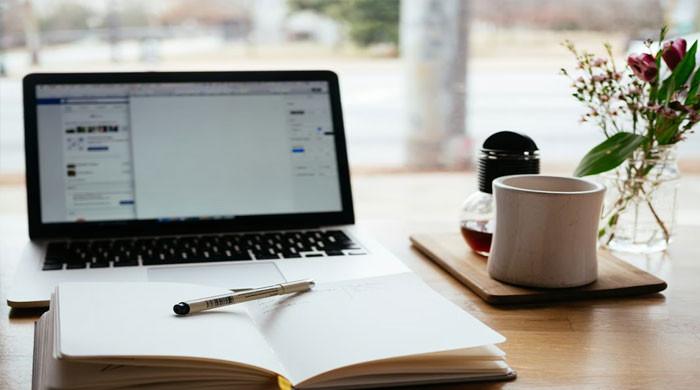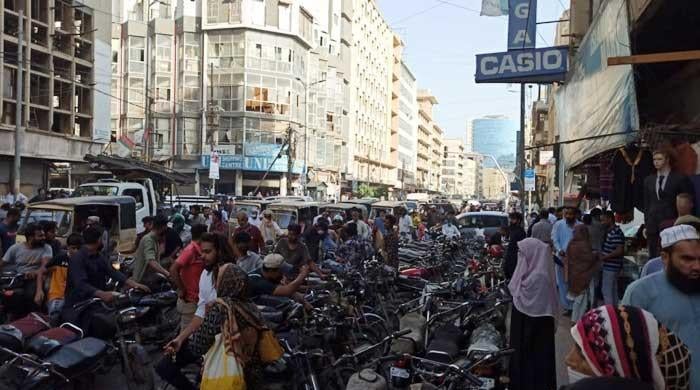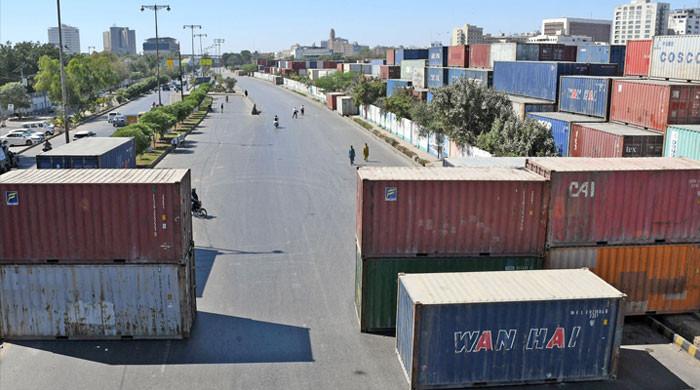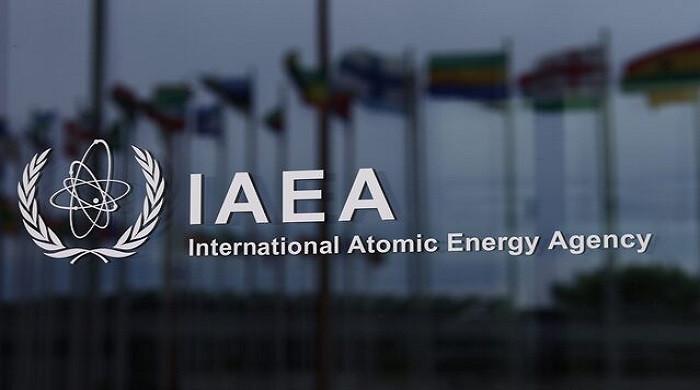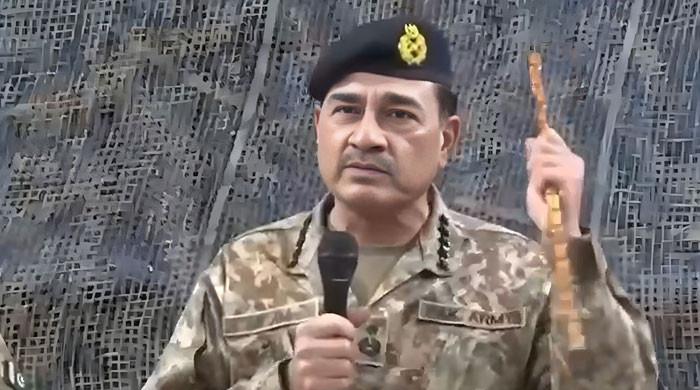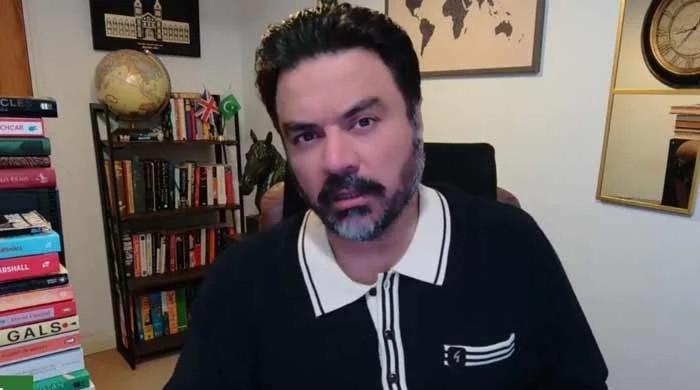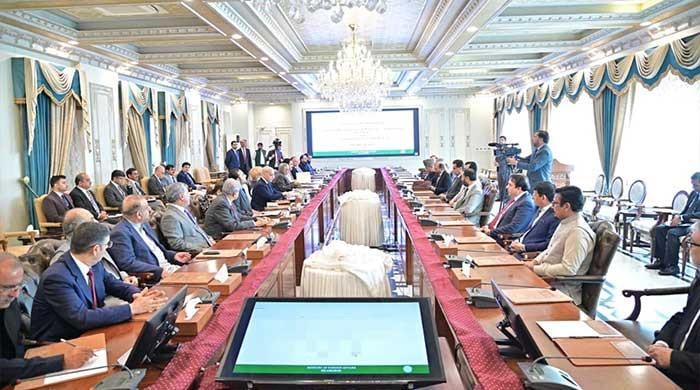Pakistanis fear being locked out of US despite 'Muslim ban' suspension
Trump's executive order has stoked anti-Muslim rhetoric in the US, with many Muslims scared to even draw attention to themselves
February 09, 2017
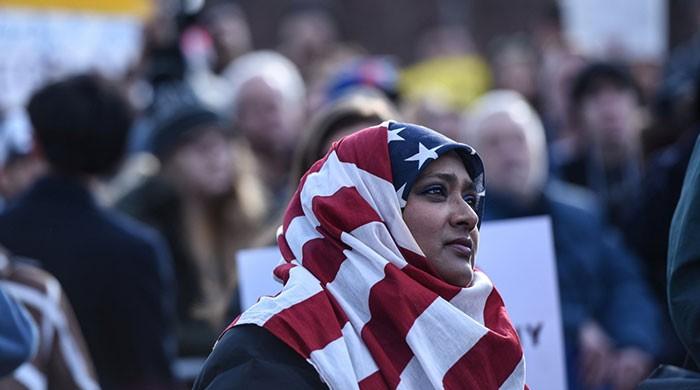
KARACHI: Afshan Rukhe, a PhD student at a university in North Carolina, had been planning a break from her busy and rigorous academic schedule for a while. Her flight was booked, hotel stay and other travel details for South America finalised. But when real estate mogul and former reality TV star Donald Trump took charge of the White House on Jan. 20, Rukhe decided to put her vacation plans on hold.
"I was going to travel to Latin America in April," the 34-year-old Pakistani student told Geo.TV, "But now, I am not too sure."
Shortly after taking office as the 45th president of the United States, Trump passed a controversial executive order that prevented people from seven Muslim-majority countries – Iran, Iraq, Libya, Somalia, Sudan, Syria and Yemen – from entering the US for 90 days. As a result, hundreds of people were detained at airports and denied entry to the country.
Last week, a federal judge blocked the travel ban temporarily. But, despite the suspension, the Trump administration is not backing down and has vowed to take the matter to higher courts. Troublingly, it has also hinted at adding more countries to the list and Pakistan's name keeps coming up.
In a recent interview, the White House chief of staff said that the seven countries identified are those where "dangerous terrorism" is taking place. "Now, you can point to other countries that have similar problems, like Pakistan and others. Perhaps we need to take it further," he added. The statement has made Pakistanis residing in the United States with valid visas, like Rukhe, very nervous.
And they aren't the only ones. The uncertainty and confusion has gripped all travellers. US citizens of Pakistani origin are also deciding to stay put, concerned that they could soon be ensnared by the new policy.
"We are rethinking our travel plans for February," admits Fatima Hassan, 36, a Pakistani-American from New Jersey. "The ban doesn't affect us yet, but we will have to go through extra security checking and face long delays."
Several of Hassan's friends living in the US on work and spousal visas have cut short their travel abroad. "It feels like a matter of time before Pakistan is also included in the ban," she says.
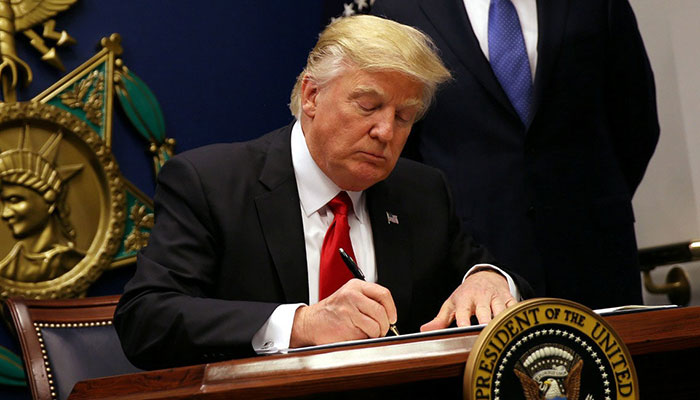
Trump passed a controversial executive order that prevented people from seven Muslim-majority countries – Iran, Iraq, Libya, Somalia, Sudan, Syria and Yemen – from entering the US for 90 days
Last week, a travel agent in Long Island, New York, told the British Broadcasting Corporation (BBC) that upward to 95 percent of his clients, who are mostly US green card holders, had cancelled their tickets to Pakistan. Immigration lawyers are also cautioning their Pakistani clients against travelling abroad, and those visiting their home country to return immediately.
In the last few days, Rana Taj, a Pakistani-American working in the US as an immigration attorney, has been overwhelmed by frantic calls. His clients are worried that they could be locked out of the United States. "Pakistanis who live here are concerned and very scared," he tells Geo.TV over the phone from Pennsylvania.
"Fortunately, till now there has been no case of a Pakistani-American being barred from entering."
While Pakistanis with US passports and green cards should not fear detention, they need to be prepared for detailed questioning at the airports, warns Taj.
For many Muslims both in and outside of Trump's America, the new restrictions have a racist tinge. The measure, many feel, has stoked anti-Muslim rhetoric in the country. Last week, just hours after the executive order was signed, a mosque in Texas was burned to the ground.
"Muslims here are scared to draw attention to themselves. There has been a change in the attitude towards Muslim. If it doesn't stop, it will keep getting worse for us," said Nouman Masood, a Pakistani post-graduate student living in Philadelphia since 2013.
On Tuesday, White House Press Secretary Sean Spicer said the government had no immediate desire to add more countries to the travel ban list.
But, he added, the Trump administration is still in the review process, is looking at all of the other countries, and that "nothing is final until the end of the review period".
The Pakistani community is closely watching each development since the new administration has come in. While they have been advised to keep their heads down, other Americans are fighting back. Large protests and marches have been organised across the country against Trump’s policies.
"The protests are already bringing about change," says Hassan, "Lawyers in New York have helped obtain stay orders and allowed refugees to enter the country. The constitutionality of the executive order is being challenged."
Afshan Rukhe is also hopeful that the loud protests would force the administration to rescind the order. Or, as American filmmaker Micheal Moore predicts, Trump would resign before his first term ends.





